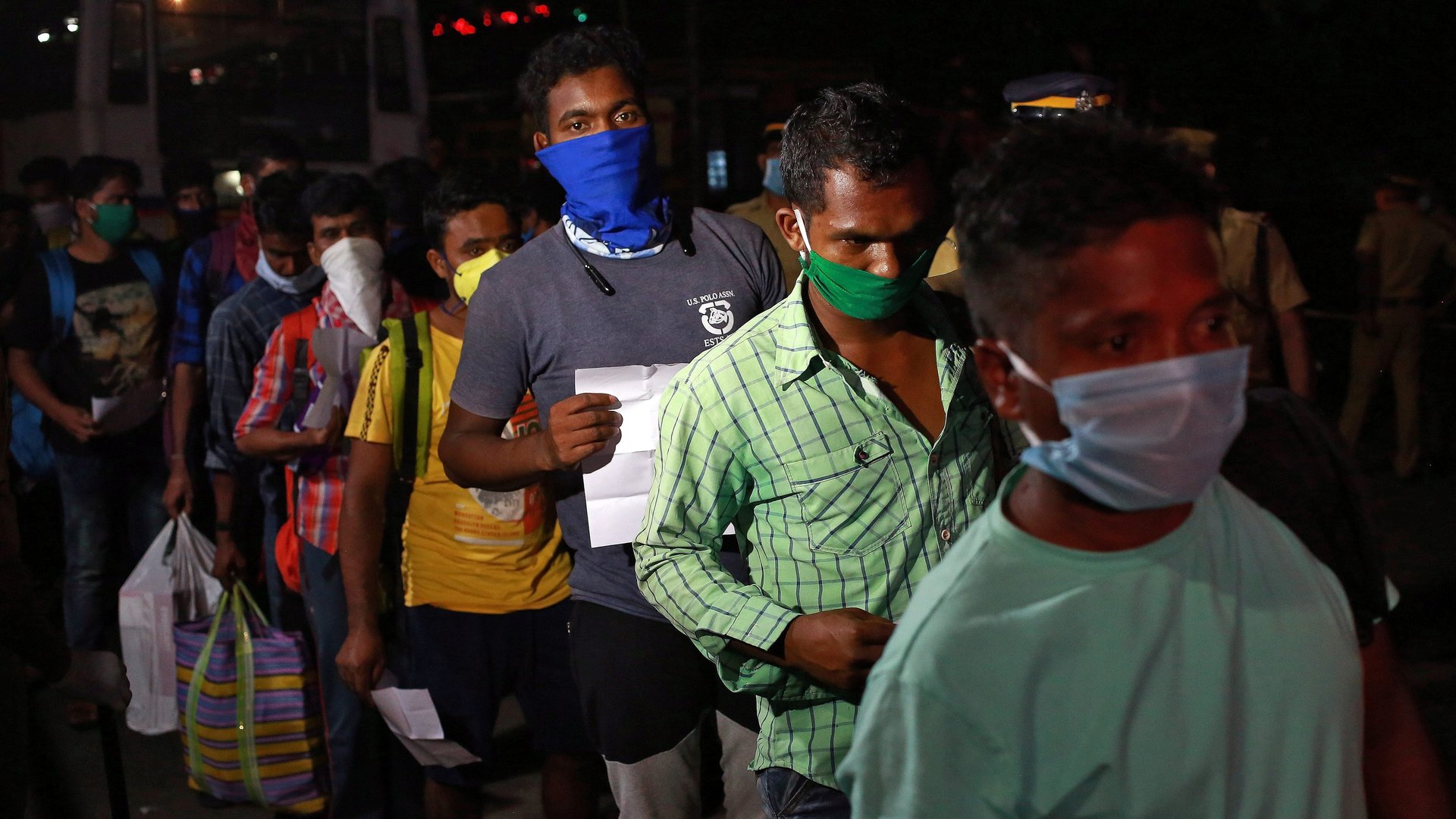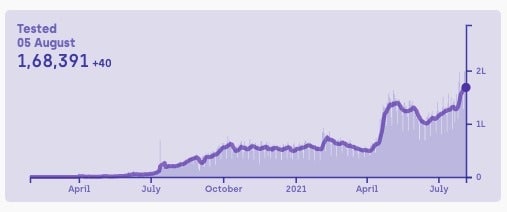Why does Kerala still have so many cases of Covid-19?
A southern state known for its exceptional pandemic control currently has the most new cases of coronavirus in India.


A southern state known for its exceptional pandemic control currently has the most new cases of coronavirus in India.
Kerala, along India’s western coast, reported over 22,000 cases yesterday (Aug. 5), nearly 50% of the day’s total new Covid-19 infections in the country. The only other state contributing to a majority of India’s caseload is Maharashtra, which had over 9,000 new infections yesterday. Kerala’s new cases are still significantly below its peak of over 43,000 on May 12.
Though densely populated, the state had become exemplary in how it controlled the spread of coronavirus infections since March 2020. Tapping into its past experience with Zika and Nipah viruses, it has tried stopping the waves of infections from suddenly spiking, and keeping its Covid fatalities low. Its case fatality ratio is among the lowest in India at 0.5%. Even at 43,000 cases, Kerala’s healthcare, unlike in several metropolitan cities like Delhi and Ahmedabad, had not crumbled under the pressure.
But as cases ebb in the rest of the country, possibly mimicking the curve delta variant infections have exhibited in other parts of the world, Kerala’s new cases have remained stubbornly high. The state’s health minister has warned that the second wave is still raging in Kerala and this is not the time to drop the guard.
But has the second wave taken away Kerala’s exceptional status in the pandemic?
Why are cases so high in Kerala?
Epidemiologists have various possibilities for why the state is continuing to see a surge in cases. Curiously, some say that because Kerala has consistently controlled infections, it has more naive population numbers where the infection can spread.
The other theory is that Kerala is testing at a much higher rate than the rest of the country and detecting far more Covid-19 infections.
Kerala conducted over 79,000 tests for every 100,000 people yesterday. Maharashtra on the same day tested 40,000 people per 100,000 of its population. By comparison, Uttar Pradesh, among India’s largest states, tested 29,000 per 100,000, according to data collated by Covid-19 India, a crowdsourced volunteer-driven tracking initiative.
Barring a slight dip in July, testing in Kerala has remained consistently high.

This is also an argument health economist Rijo M John makes. Based on the states’ testing data and the nationwide serological survey (which tests for Covid-19 antibodies) conducted by the Indian Council of Medical Research, John arrived at the “undercounting factor” for most states. This was done to determine how many infections were officially logged, and how many were missed because of lack of testing.
Kerala detected one in every six cases of Covid-19, according to John’s calculations. But nationwide, this number rose to one in 33 cases, which points to why some states with low testing levels are reporting far fewer cases.
In fact, the undercounting factor may be even lower for Kerala, given that the survey does not differentiate between antibodies from natural infections and vaccinations. “Given that the vaccination rate was higher in Kerala at the time of the fourth survey, it is possible that this under-counting factor may be slightly overestimated for Kerala compared to India,” he wrote in The Wire.
Vaccinations in Kerala
The state is also a leader in terms of vaccinations, administering at least one dose to over 42% of its population and fully vaccinating nearly 18%. Uttar Pradesh, which leads in terms of the total number of doses administered, has at least partially vaccinated under 20% of its population, below the national average of 28.6%.
Kerala has also prioritised vaccinations in priority groups, especially among those above the 45. Nearly 70% of its 21.3 million doses of vaccines administered so far have been in the category of those above 45 years, often considered more susceptible to hospitalisations because of Covid-19.
Festivals in Kerala
But the state has also been critiqued for lifting lockdown restrictions too soon and allowing festivals and public celebrations to take place despite a raging second wave.
For instance, it eased restrictions during Eid celebrations in July, for which India’s supreme court asked the state to explain its decision. For the upcoming Onam festival, Kerala has asked its residents to exercise caution and adhere to strict Covid-appropriate behaviour.
Kerala will need to be vigilant if it wants to keep the pandemic in check. “The hospitalisations and deaths now represent infections from sometime before, so I would not necessarily take solace in the fact that they are low right now,” Dr Swapneil Parikh, a Mumbai-based physician, told the BBC. He warned that the test positivity rate was consistently high and is “still a cause for worry.”